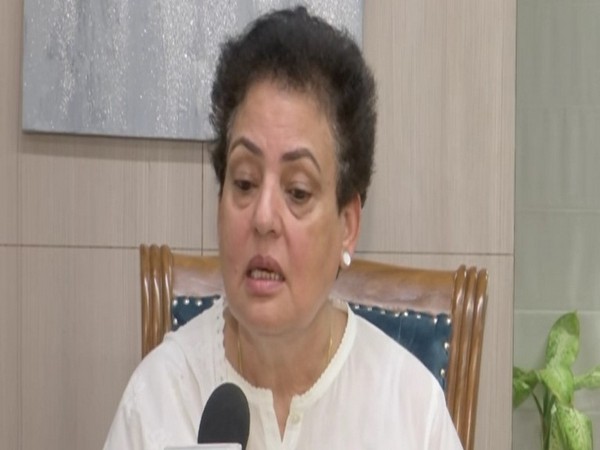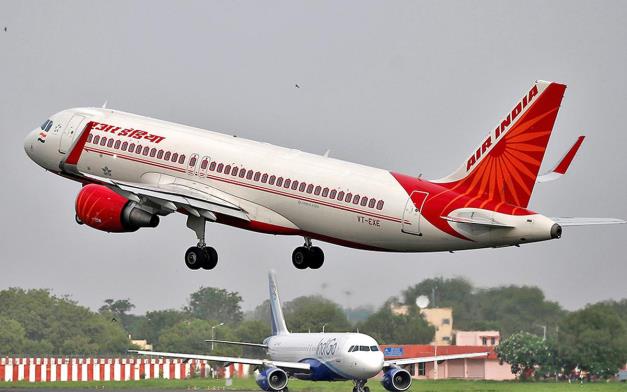Air India on Wednesday said it has imposed a 30-day flying ban on a passenger who had allegedly urinated on an elderly co-passenger during a New York-Delhi flight in November last year and Delhi Police has registered an FIR over the shocking incident.
While the Directorate General of Civil Aviation (DGCA) also launched an investigation, Air India has set up an internal panel to probe whether there were lapses on part of the crew in addressing the situation that caused distress to the woman.
The National Commission for Women has taken cognisance of the incident onboard the Air India flight in which the inebriated male passenger also flashed his private parts at the elderly woman.
The Commission has sought a detailed action taken report within seven days from the Delhi Police Commissioner over the incident.
Air India said as a first part, it has banned the passenger for 30 days, the maximum it is permitted to unilaterally do so.
The airline said it has taken very serious note of the incident that caused extreme distress to a passenger.
“Air India has taken a very serious note of the incident, where a passenger behaved in an unacceptable and undignified manner on the New York-Delhi flight that caused extreme distress to a fellow passenger. A police complaint has already been lodged in this case and Air India is committed to assisting the law enforcement agencies as well as regulatory authorities to ensure that justice is delivered to the aggrieved passenger,” an Air India spokesperson said, adding that they have reported the matter to the Directorate General of Civil Aviation (DGCA) for further action.
“We have also constituted an internal committee to probe lapses on the part of Air India’s crew and address the deficiencies that delayed quick redressal of the situation. We are also in regular contact with the aggrieved passenger and her family during the investigation and reporting process,” the spokesperson added.
The Delhi Police has registered the FIR under sections 354, 509, 510 of the Indian Penal Code and 23 of the Indian Aircraft Act against the man.
The police said the incident occurred on November 26 and the airline concerned (Air India) approached the police after a month and two days, i.e., on December 28.
In her letter to the chairman of the Board of Tata Sons, N Chandrasekaran, the woman passenger, who is in her seventies, called the flight experience extremely traumatic and expressed deep disappointment over the incident in the business class section of the flight.
In her letter, the woman said the ‘appalling incident’ occurred shortly after the lunch was served and the lights were switched off, as she was getting ready to sleep. The flight had taken off from John F Kennedy international airport in New York.
She said that within minutes, an inebriated male walked to her seat and unzipped his pants, relieving himself and continued to expose his private parts until another passenger asked him to return to his seat.
“During the course of the flight, shortly after lunch was served and the lights were switched off, I was getting ready to sleep, and another passenger walked to my seat completely inebriated. He unzipped his pants, relieved himself, and continued to expose me to his private parts. The passenger sitting next to me asked him to return to his seat. He did not respond immediately, but after a few moments left the area,” her letter said.
The country’s aviation regulator the Directorate General of Civil Aviation (DGCA) said that it has sought a report of the incident from the airline and said “action will be taken against those negligent.”
NCW chairperson Rekha Sharma wrote Delhi Comissioner of Police Sanjay Arora that strict action should be taken against the culprit for “causing mental trauma to an elderly woman”.
“NCW has come across several media reports wherein it has been alleged that a drunken man urinated on a woman co-passenger in an Air India flight in November and left without facing any action. It has also been reported that after urinating, the man allegedly didn’t move until another passenger asked him to leave. The woman had complained to the crew, however, the crew allegedly gave her a set of pyjamas and slippers and told her to return to her seat, claiming no other seat was available,” the NCW statement said.
The Commission said it has also written to the Air India Chairman to take appropriate action against the culprit.
“The Commission has taken cognizance of the matter. Chairperson Rekha Sharma has written to the Commissioner of Police, Delhi to immediately register FIR in the matter under relevant provisions of law and to take strict action against the culprit for causing mental trauma to an elderly woman. The Commission has also written to the Chairman, Air India Limited to intervene in the matter and to take appropriate action against the culprit for the horrendous behaviour of an elderly woman on a flight and violating her right to live a life of dignity and safety,” the national women’s panel said.
“A detailed action taken in the matter must be communicated to the Commission within seven days,” the NCW added. (ANI)
Read More: http://13.232.95.176


